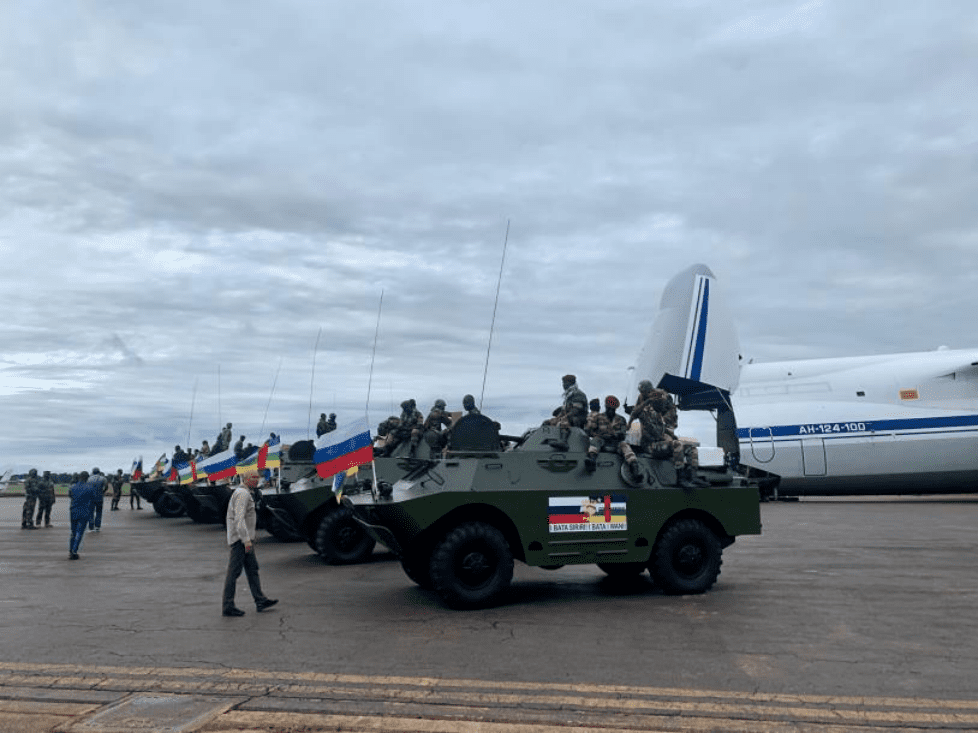
While the world’s eyes remain fixed on the war in Ukraine, Russia is making huge strides expanding its African influence via the mercenary Wagner group. While mercenaries are hardly new to post-colonial Africa, a report from a Geneva-based international NGO stresses that Wagner represents a new hybrid evolution in international power politics.
“The Wagner Group is unique as an organization in the breadth, scale and boldness of its activities” it reads, summarising a sample of their method:
The group has been accused of using whatever means necessary, including criminal activity, to achieve its aims: from indiscriminate use of violence against civilians in its military engagements, to disinformation campaigns and election-rigging to industrial scale smuggling of natural resources, like gold and diamonds. The group operates in the grey zone, spanning both legal and illegal economies.
A key element of Wagner’s quid-pro-quo is favourable deals for the Russian state from the regimes it helps. Just last week Sudan announced its approval for a Russian naval base on its Red Sea coast.
While Sudan has long denied the presence of Wagner, AP reports the group has been active there since 2017. An anonymous Egyptian diplomat said that Wagner “is at the top of every meeting.”
Wagner is especially active in the diamond and gold-rich borderlands with the Central African Republic (CAR), and operates from both sides.
From the Sudanese side, analyst Phillip van Niekerk, writing for The Daily Maverick, says Wagner is working closely with the powerful Rapid Support Forces (RSF) militia in the Darfur region. The RSF is commanded by Mohamed Hamdan Daglo, or ‘Hemeti,’ the Sudanese Junta’s second-in-command.
Meanwhile, the CAR, whose regime Wagner defends against rebel groups, serves as the mercenary force’s main African hub. A Russian envoy has reported that there are over 1,800 ‘instructors’ active in the country. It has also been reported that the company recently has sustained losses fighting rebel groups for control of the goldmines near the borders of Chad and Sudan.
Earlier this February while visiting Khartoum, Russian foreign minister Lavrov discussed continuing cooperation with the Sudanese government, including fighting UN sanctions. Sudan is ruled by a military Junta which ended the transition to civilian rule in a 2021 coup. Alongside a brutal, long-running ethnic conflict in the western Darfur region, the regime has had sanctions imposed on it by the UN security council.
Lavrov also visited the Mali government, where he promised to continue helping the military government in its fight against the active jihadist forces in the north of the country. While the initial counter insurgency was led by French forces and accompanied by both European Union missions and UN peacekeepers, the French withdrew in early 2022; they are soon to be followed by German forces based there. The presence of western forces in the country is seen in a neocolonial light by many Malians, and Wagner propaganda efforts have been keen to play up this dimension.
With Africa placed on the back burner of western priorities in light of Ukraine and China, the expansion of Russian influence in Africa via the Wagner group looks set to continue.
